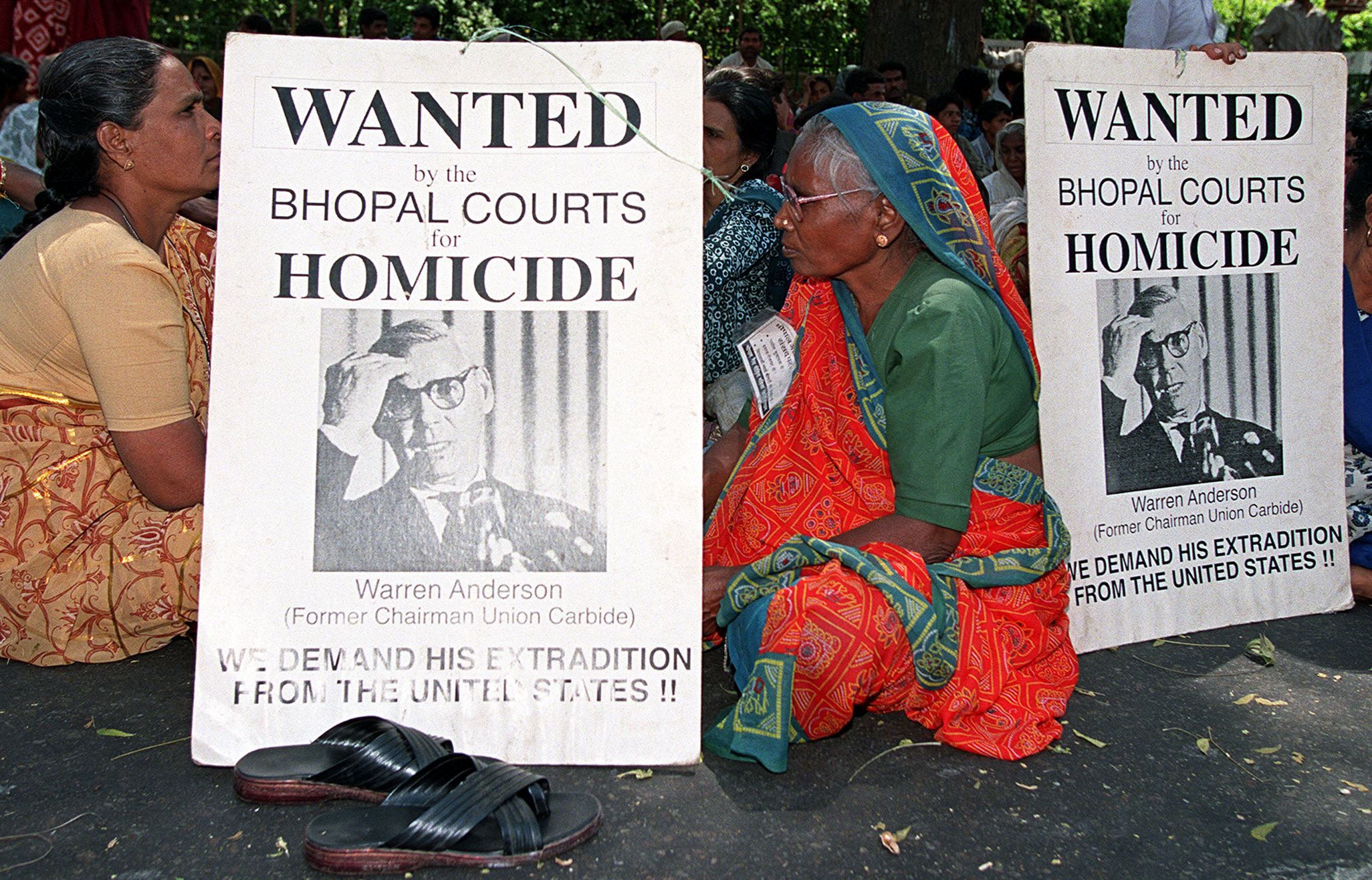Warren Anderson dead: Former Union Carbide CEO, wanted over Bhopal gas leak disaster, dies
The American businessman was officially declared a fugitive after fleeing from India after the leak

Your support helps us to tell the story
From reproductive rights to climate change to Big Tech, The Independent is on the ground when the story is developing. Whether it's investigating the financials of Elon Musk's pro-Trump PAC or producing our latest documentary, 'The A Word', which shines a light on the American women fighting for reproductive rights, we know how important it is to parse out the facts from the messaging.
At such a critical moment in US history, we need reporters on the ground. Your donation allows us to keep sending journalists to speak to both sides of the story.
The Independent is trusted by Americans across the entire political spectrum. And unlike many other quality news outlets, we choose not to lock Americans out of our reporting and analysis with paywalls. We believe quality journalism should be available to everyone, paid for by those who can afford it.
Your support makes all the difference.Warren Anderson died on 29 September, aged 92, public records have shown.
He reportedly died at a nursing home in Vero Beach, Florida, although his family have not yet confirmed his death.
Anderson was CEO of US chemical company Union Carbide, responsible for a gas leak that killed over 10,000 people in Bhopal, India in 1984.
The company’s plant leaked 40 tonnes of poisonous gas into the surrounding city in what is considered the world’s worst industrial disaster.
More than 555,000 people who survived are thought to have suffered after-effects, and many have died from gas-related illnesses, such as lung cancer, kidney failure and liver disease.
Anderson visited Bhopal four days after the accident, where he was immediately arrested. He paid bail, but left the country soon after before he could face trial.
The Indian government has made numerous attempts to extradite him, but never succeeded. He was officially labelled a fugitive, and a judge called him an “absconder”. In 1986, at age 65, he retired from Union Carbide.
In 1989, Union Carbide paid $470 million to the Indian government over the disaster, but the public still called for Anderson’s arrest.
Join our commenting forum
Join thought-provoking conversations, follow other Independent readers and see their replies
Comments